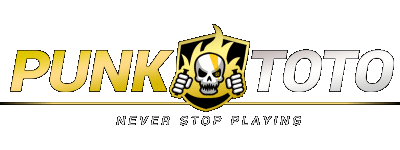PUNKTOTO - Situs Toto Macau 4D Dan Situs Slot Dana Terbaik
PUNKTOTO - Situs Toto Macau 4D Dan Situs Slot Dana Terbaik
$888.00 SGD
Unit price peror
Protection+ for PUNKTOTO (2 year plan)
Rtp Slot
> Tentukan tanggal & Rtp terlebih dahulu…
> Lalu klik CLAIM RTP untuk membuka hasil…
Get it fast
Pickup
Loading store
Error loading
Limited Time Promotion
Limited Time Promotion
Apa itu PUNKTOTO ?
Apa itu PUNKTOTO ?
PUNKTOTO adalah situs bandar slot gacor yang menyediakan berbagai permainan slot dengan peluang kemenangan yang tinggi, dirancang untuk memberikan pengalaman bermain yang menarik dan mengasyikkan.
Pelajari Selengkapnya
Apakah PUNKTOTO menyediakan aplikasi untuk memudahkan bermain?
Apakah PUNKTOTO menyediakan aplikasi untuk memudahkan bermain?
Saat ini, PUNKTOTO mengutamakan pengalaman pengguna yang optimal dengan menyediakan versi responsif dari situs web yang dapat diakses melalui perangkat seluler. Mereka juga terus berinovasi dan mengembangkan aplikasi untuk memberikan kemudahan bermain kapan saja dan di mana saja.
Pelajari Selengkapnya











Limited Time Promotion
Financing
Trade in popup


Trade-In
Explore the devices to Pelajari Selengkapnya.
Trade-in your device in 3 easy steps!
Please contact us at [email protected] if you have other enquiries. Trade-in program is provided by "Carousell".
Frequently Asked Questions
What do I need to bring along?
You will be required to bring your charger and cable for laptops.
What if I do not like the value after assessment?
You can choose to not accept the trade-in value, but the value shown is final.
Can multiple devices be traded in during the same transaction?
Unfortunately, only one device can be traded in per transaction.
Do I get to keep the memory card from the trade-in devices?
We recommend that you remove and keep all your memory cards before you trade-in a device
Would I be able to get back my old device back after the trade-in?
You would not be able to retrieve your old device as all trade-ins are final. Prior to trading in your device, we recommend backing up all your important content such as contacts, photos, videos, etc.
Can I trade-in my device if it does not work?
We would not be able to assess your device if we are unable to power on your device.
What if my device is not found in the trade-in device list?
You can head down to our stores to get your device assessed by our iStudio Experts to check if it is accepted.
Collapsible content
Terms and Conditions
- Customer affirms that s/he is at least legally 18 years of age.
- "Customer" means the undersigned that is the owner of the Product or has been authorised by the owner of the Product to make decisions on the Product.
- The Trade-in programme is provided to iStudio customers by Laku6 as a third party company. Apple is not a party in the transaction.
- Laku6 and iStudio reserve the right to refuse, cancel, or limit the programme for any reason and may change these terms and conditions at any time without prior notice.
- The Programme is provided for lawful purposes only, to the extent permitted by law, Customer agrees to indemnify iStudio, Laku6, its affiliate and any of its directors, officers, employees, affiliates, subsidiaries or agents from and against claims brought against any of them arising from Customer's breach of terms and conditions of the Programme.
- iStudio trade-in programme is only available at all iStudio stores (excluding Airport Terminal Stores)
- Total trade-in value is not transferable.
- iStudio reserves the right to refuse any customer's eligibility at any time in its discretion in the even of such customer's breach or suspected breach of any of the terms and conditions herein without prior notification or any liability to such customer whatsoever.
- iStudio reserves the right to vary any term or condition. iStudio will, where it is practicable to do so, give customers advance notice (which may be through written notice, electronic mail letters, iStudio website, or such other forms as iStudio deems appropriate) of such changes.
- This iStudio Trade-in programme is limited to one (1) device per eligible trade-in.












